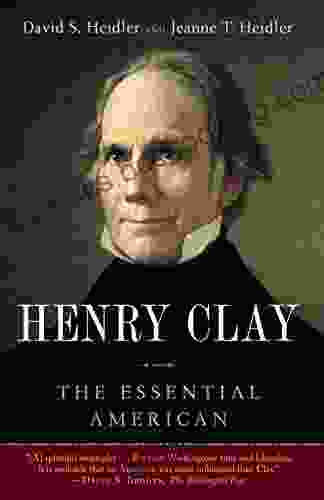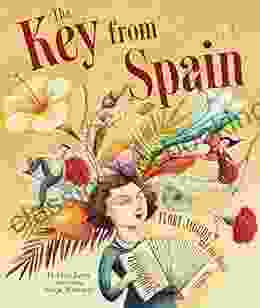Henry Clay: The Essential American, A Statesman for All Seasons

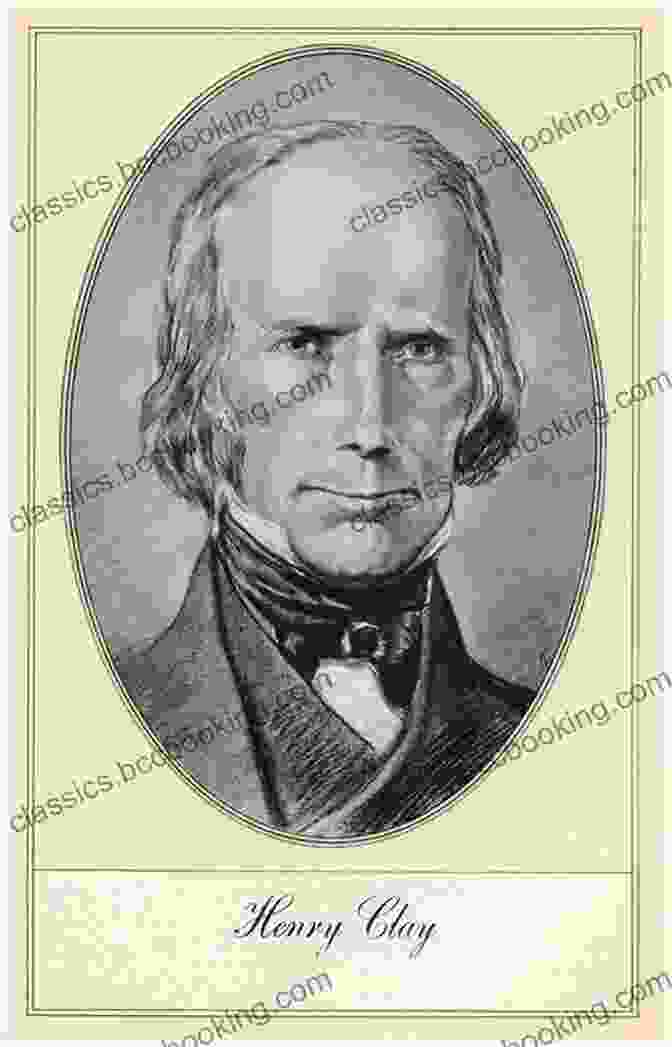
In the annals of American history, few figures loom larger than Henry Clay. Known as "The Great Compromiser," Clay played a pivotal role in shaping the nation's destiny during some of its most tumultuous eras. His profound intellect, oratorical brilliance, and unwavering commitment to the Union earned him the respect and admiration of contemporaries and historians alike.
4.5 out of 5
| Language | : | English |
| File size | : | 10122 KB |
| Text-to-Speech | : | Enabled |
| Enhanced typesetting | : | Enabled |
| Word Wise | : | Enabled |
| Print length | : | 938 pages |
| Screen Reader | : | Supported |
This comprehensive article delves into the remarkable life and legacy of Henry Clay, exploring his contributions to American politics, diplomacy, and nation-building. Through detailed analysis, engaging anecdotes, and insightful perspectives, we uncover the complexities of this extraordinary statesman and his enduring impact on the United States.
Early Life and Education
Henry Clay was born on April 12, 1777, in Hanover County, Virginia. His father, John Clay, was a Baptist minister and farmer. Henry received a basic education in local schools before moving to Richmond in 1791 to work as a clerk in a law office.
Clay's legal apprenticeship ignited a passion for the law and politics. He excelled in his studies and was admitted to the bar in 1797. Clay quickly established himself as a skilled trial lawyer and eloquent orator.
Political Career in Kentucky
In 1797, Clay relocated to Kentucky, a rapidly growing frontier state. His charismatic personality and impressive legal abilities soon gained him prominence. He was elected to the Kentucky legislature in 1803 and served as Speaker of the House from 1807 to 1809.
Clay's political philosophy was rooted in the ideals of the Enlightenment. He believed in a strong federal government, economic development, and the promotion of education and culture. As a Representative in the U.S. Congress from 1806 to 1807 and again from 1811 to 1825, he advocated for these principles and emerged as a leader of the War Hawks, who favored military action against Great Britain during the War of 1812.
The Missouri Compromise
One of Clay's most significant contributions to American history was his role in resolving the crisis over the admission of Missouri as a state. The issue centered on the legality of slavery in the new state. In 1820, Clay brokered a compromise that admitted Missouri as a slave state while prohibiting slavery in the rest of the Louisiana Territory north of latitude 36°30'.
The Missouri Compromise averted a potential civil war and became a model for resolving future sectional conflicts. Clay's diplomatic skills and ability to find common ground were instrumental in preserving the Union.
The Tariff of 1816
Another major issue that Clay championed was the Tariff of 1816. This tariff was designed to protect American industries from foreign competition and stimulate economic growth. Clay believed that a strong economy was essential for the well-being of the nation.
The Tariff of 1816 sparked controversy, with some sections of the country benefiting more than others. However, it laid the foundation for the industrial development of the United States in the 19th century.
The American System
In the early 1820s, Clay articulated his comprehensive vision for the nation's economic and political future known as the American System. The system consisted of three main components: a protective tariff, a national bank, and internal improvements such as roads and canals.
Clay believed that the American System would promote economic growth, national unity, and independence. While the system was not fully implemented, it influenced public policy for decades and helped shape the development of the United States into a modern industrial power.
Secretary of State under John Quincy Adams
In 1825, Clay accepted the position of Secretary of State under President John Quincy Adams. During his tenure, he played a key role in negotiating the Treaty of Ghent with Great Britain, which ended the War of 1812, and the Panama Congress, which aimed to foster cooperation among the newly independent nations of the Americas.
Clay's diplomacy on the international stage further enhanced his reputation as a statesman of great skill and vision.
Opposition to Jackson and the Whigs
In the late 1820s, Clay emerged as a leading opponent of President Andrew Jackson. Clay believed that Jackson's policies were harmful to the interests of the nation, particularly his veto of the renewal of the Second Bank of the United States.
In 1832, Clay helped establish the Whig Party, a coalition of opponents to Jackson's Democratic Party. Clay served as the party's presidential candidate in 1832 and 1844 but was defeated both times.
The Compromise of 1850
As sectional tensions over slavery intensified, Clay once again played a pivotal role in averting a national crisis. In 1850, he championed the Compromise of 1850, a series of measures designed to settle the issue of slavery in the territories acquired in the Mexican-American War.
The compromise included the admission of California as a free state, the creation of the territories of Utah and New Mexico without restrictions on slavery, and a more stringent fugitive slave law. While the Compromise of 1850 temporarily calmed the tensions between the North and the South, it ultimately failed to resolve the underlying causes of the Civil War.
Legacy and Impact
Henry Clay died on June 29, 1852, at the age of 75. His funeral was attended by an estimated 20,000 people, a testament to his immense popularity and respect.
Clay's legacy as a statesman is complex and contested. He was a brilliant orator and an effective politician, but also an ardent defender of slavery. His compromises and efforts to preserve the Union have been both praised and criticized.
Despite the controversy surrounding his views, there is no doubt that Henry Clay played a major role in shaping the United States. His intellect, eloquence, and unwavering commitment to the nation left an enduring mark on American history.
Henry Clay was a towering figure in American politics and diplomacy. His ability to find common ground, articulate a vision for the nation, and navigate complex issues made him an indispensable figure during some of the country's most challenging times.
While his legacy may be complex and subject to ongoing debate, Henry Clay's contributions to the United States cannot be overstated. He was a true essential American, a statesman whose brilliance, eloquence, and dedication to the Union continue to inspire generations.
4.5 out of 5
| Language | : | English |
| File size | : | 10122 KB |
| Text-to-Speech | : | Enabled |
| Enhanced typesetting | : | Enabled |
| Word Wise | : | Enabled |
| Print length | : | 938 pages |
| Screen Reader | : | Supported |
Do you want to contribute by writing guest posts on this blog?
Please contact us and send us a resume of previous articles that you have written.
 Book
Book Novel
Novel Page
Page Chapter
Chapter Text
Text Story
Story Genre
Genre Reader
Reader Library
Library Paperback
Paperback E-book
E-book Magazine
Magazine Newspaper
Newspaper Paragraph
Paragraph Sentence
Sentence Bookmark
Bookmark Shelf
Shelf Glossary
Glossary Bibliography
Bibliography Foreword
Foreword Preface
Preface Synopsis
Synopsis Annotation
Annotation Footnote
Footnote Manuscript
Manuscript Scroll
Scroll Codex
Codex Tome
Tome Bestseller
Bestseller Classics
Classics Library card
Library card Narrative
Narrative Biography
Biography Autobiography
Autobiography Memoir
Memoir Reference
Reference Encyclopedia
Encyclopedia David Pere
David Pere David Herbert Donald
David Herbert Donald David King
David King Daniele Bolelli
Daniele Bolelli David Bayles
David Bayles Deborah Feldman
Deborah Feldman David Archibald
David Archibald Debbie Tremel
Debbie Tremel Daniela Morelli
Daniela Morelli Danny Schechter
Danny Schechter Daniel Todd Gilbert
Daniel Todd Gilbert David Bloomberg
David Bloomberg David Norrie
David Norrie Dave Mckinsey
Dave Mckinsey David Poyer
David Poyer David P Sandgren
David P Sandgren Debbie Bowman Shea
Debbie Bowman Shea Deanne Howell
Deanne Howell David M Friedman
David M Friedman David Blatner
David Blatner
Light bulbAdvertise smarter! Our strategic ad space ensures maximum exposure. Reserve your spot today!

 Frank MitchellHow To Become Pro At Trading Penny Stocks Stock Market Investing Day Trading
Frank MitchellHow To Become Pro At Trading Penny Stocks Stock Market Investing Day Trading
 Robert Louis StevensonThe Dantes: An 11 Family Saga of Billionaires, Soul Mates, and Fake...
Robert Louis StevensonThe Dantes: An 11 Family Saga of Billionaires, Soul Mates, and Fake...
 Dominic SimmonsToo Close to Kill: An Addictive Detective Mystery Packed with Twists and...
Dominic SimmonsToo Close to Kill: An Addictive Detective Mystery Packed with Twists and... Thomas PowellFollow ·15.9k
Thomas PowellFollow ·15.9k Javier BellFollow ·6.5k
Javier BellFollow ·6.5k William ShakespeareFollow ·9.1k
William ShakespeareFollow ·9.1k Hugh ReedFollow ·2.3k
Hugh ReedFollow ·2.3k Herman MitchellFollow ·10.8k
Herman MitchellFollow ·10.8k Vincent MitchellFollow ·9.3k
Vincent MitchellFollow ·9.3k Carter HayesFollow ·8.7k
Carter HayesFollow ·8.7k Barry BryantFollow ·15.5k
Barry BryantFollow ·15.5k
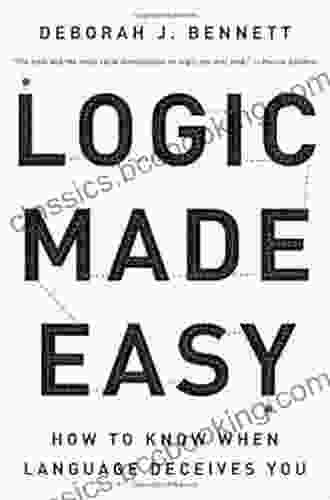
 Cameron Reed
Cameron ReedHow to Know When Language Deceives You
Unmasking the Power of...

 Robbie Carter
Robbie Carter50 Things To Know About Planning Home Schooling...
: The Power of Hands-On Learning Embarking...
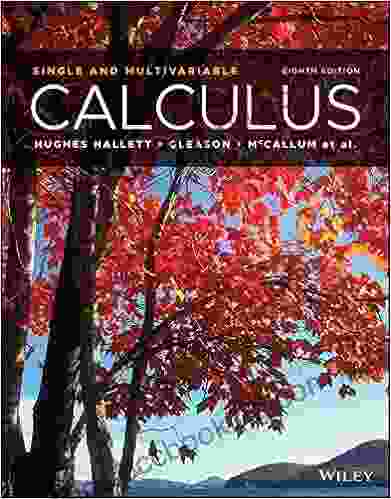
 Julio Cortázar
Julio CortázarCalculus: Single and Multivariable, 8th Edition — The...
Calculus is the...

 Jaime Mitchell
Jaime MitchellBunnicula and Friends: A Spooktacular Tale of Mystery and...
In the quaint little town of Celeryville,...

 Josh Carter
Josh CarterPeppa Easter Egg Hunt: Join Peppa Pig on an...
Get ready for...
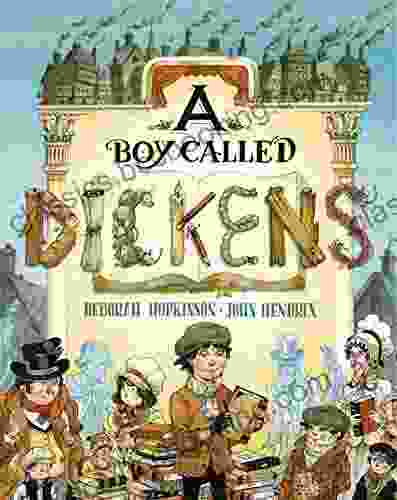
 Donovan Carter
Donovan CarterBoy Called Dickens: A Journey into the Childhood of a...
Delving into the...
4.5 out of 5
| Language | : | English |
| File size | : | 10122 KB |
| Text-to-Speech | : | Enabled |
| Enhanced typesetting | : | Enabled |
| Word Wise | : | Enabled |
| Print length | : | 938 pages |
| Screen Reader | : | Supported |


